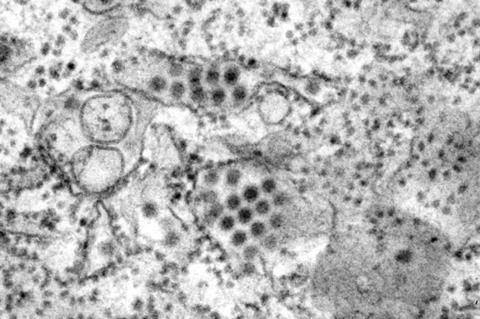Dengue is a disease characterized by fever, rash, headache, myalgia, and arthralgia with risk for complications due to endothelial dysfunction and hemorrhage. Most common in countries in Central and South America, Southeast Asia, and Africa, travel-related cases of dengue are frequently spread to the United States and occasionally sparks local transmission.

Caused by the mosquito-borne dengue virus (DENV), complicated dengue and dengue-related deaths are fortunately relatively rare in travelers. However, it puts a large strain on healthcare systems in areas where it is endemic. In Brazil for example, several states have declared a public health emergency.
Increasing geographic distribution of dengue is largely attributed to the expanding range and increased vector efficiency of Aedes species mosquitoes due to urbanization, climate change, and changing rainfall patterns associated with El Niño and spread through increased international travel.
Outbreak preparedness
Researchers including David Hamer, MD, a Boston University faculty member with appointments in the Center on Emerging Infectious Diseases (CEID), School of Public Health (SPH), and Chobanian & Avedisian School of Medicine co-authored an Ideas and Opinions article, “Resurgence of Dengue in the Era of Genomic Surveillance and Vaccines” published in Annals of Internal Medicine this month. Their article posits that “molecular epidemiologic data from whole-genome sequencing [of dengue serotypes] could enhance dengue outbreak preparedness.”
In our increasingly globalized world, disease strains spread more easily from continent to continent. Tracing the lineage of specific genotypes of dengue allows researchers to better understand how genetic diversity affects transmission dynamics, virulence, and immune protection by vaccination.
Administration of current vaccines protecting against dengue are dependent on serotype of a patient’s existing antibodies. By better understanding the variations in DENV genotypes, scientists hope to be able to develop vaccines that would not require patients to be pre-screened for serotypes, the goal of which is to allow for broader, more efficient vaccination campaigns against this global disease.







No comments yet